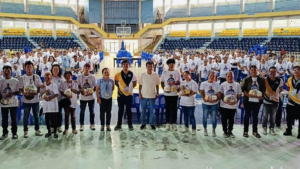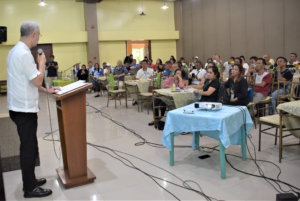The National Disaster Risk Reduction & Management Council admitted in a presidential briefing with Pres. Rodrigo Duterte that they faced challenges in responding to calls for help from provinces ravaged by super typhoon Odette due to disruption in communication and transportation services.
NDRRMC operations center chief Joe-mar Perez said communication is of primary importance as it their basis on what assistance the government can provide. But in Negros Occidental, mobile signal of both Globe and Dito were disrupted at the height of the typhoon leaving communities dependent on mobile communication to sought for assistance helpless.
According to Globe, the torrential rains and strong winds brought by the super typhoon has resulted to fiber cuts that resulted to disruption of its service in Visayas and Mindanao.
Perez highlighted the importance of communication explaining that responders cannot go to those areas while they have no idea of the support that the people need. But he said there has been major improvements in their response as compared to previous typhoon.
Aside from communication issue, uprooted trees along with downed wires also added delays in providing transport services to rescue stranded families and those who lost their homes.
In Kabankalan City, nearly 70% of its land area were submerged in water and it only started to subside around late afternoon on December 17. The local disaster group said that they were forced to halt their rescue operation last night due to road obstructions.

As of the latest status report of the disaster bureau, Odette left at least 3 casualties in the province and 7 other missing.
President Duterte said he would visit the provinces to see the condition of the people and overall situation in the areas.








